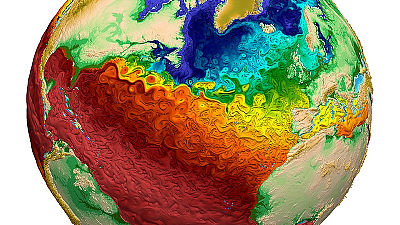Researchers warn about the risk of simultaneous multiple grain failures around the world due to abnormal weather

Extreme weather events such as prolonged droughts, heavy rains and heat waves can lead to crop failures. In addition, due to global climate change including global warming, crop failures due to abnormal weather are increasing around the world, pointing out the danger of rising prices and food supply disruptions due to supply chain disruptions. voice too. A research team led by Kai Kornhuber of Columbia University is investigating the possibility of simultaneous multiple reductions in yields in major food-producing regions around the world.
Risks of synchronized low yields are underestimated in climate and crop model projections | Nature Communications

Guest post: Climate models underestimate food security risk from 'compound' extreme weather - Carbon Brief
Researchers: We've Underestimated The Risk of Simultaneous Crop Failures Worldwide : ScienceAlert
https://www.sciencealert.com/researchers-weve-underestimated-the-risk-of-simultaneous-crop-failures-worldwide
Ensuring global food security in the face of climate change is a global challenge. Addressing this challenge requires the establishment of rational and preventative countermeasures, which requires reliable projections of future climatic conditions.
Simultaneous crop failures in several crop-producing regions, known as 'breadbaskets' around the world, would increase food insecurity and make food security difficult due to high prices associated with export restrictions. will be
Kornhuber and his colleagues first investigated the possibility of crop failure due to an air current called the `` jet stream '' that passes over the breadbasket located in the mid-latitude temperate climate region, such as central North America, eastern and western Europe, and Asia. In the figure below, the light blue line is the path of the jet stream, the green is the main breadbasket, the red shaded area is the area affected by the heat wave, and the blue shaded area is the cool summer. area affected by

As a result of the survey, it was found that the occurrence of atmospheric waves called '
An example of this is the week of July 18, 2022, and the chart below shows surface temperature deviations. The red areas are shown to be higher than the average temperature, and in the five circled areas, heat waves arrived simultaneously due to Rossby waves, and the temperature was higher than the average temperature.

The study shows that crop yields are reduced in key breadbasket areas where Rossby waves occur and meandering jet streams are strong, and the probability of crop failures increases by a factor of three in some areas. it was done.
Furthermore, the research team analyzed observation data and climate model data from 1960 to 2014 to investigate the impact of the meandering phenomenon of the jet stream caused by Rossby waves on crop yields. The analysis shows that while current climate models can indicate the location and intensity of meandering jets, they do not accurately reproduce the extent of localized extreme weather. In other words, the impact of meandering jet streams on abnormal weather has been underestimated.

In addition, Kornhuber and colleagues made a ``prediction of future crop conditions'' from 2045 to 2099, assuming the worst scenario in which global warming is not controlled. As a result of the simulation, in North America and Siberia, serious abnormal weather has occurred many times in recent years, and the risk of crop failure is increasing in the future. In addition, it is predicted that these areas will be further affected by heat waves due to meandering jet streams.
The research team points out that existing climate risk assessments may overlook areas prone to extreme weather due to the complex interaction of multiple phenomena related to atmospheric dynamics and climate change. As such, they argue that more empirical, process-based research is urgently needed to improve models of climate and agriculture.

``This study is a wake-up call about the uncertainty about the impact of climate change on crop production,'' Kornhuber said. ``We will need to prepare for complex climate change risks in the future, but it seems that there are no accurate climate models at this time.''
Related Posts:
in Science, Posted by log1r_ut







